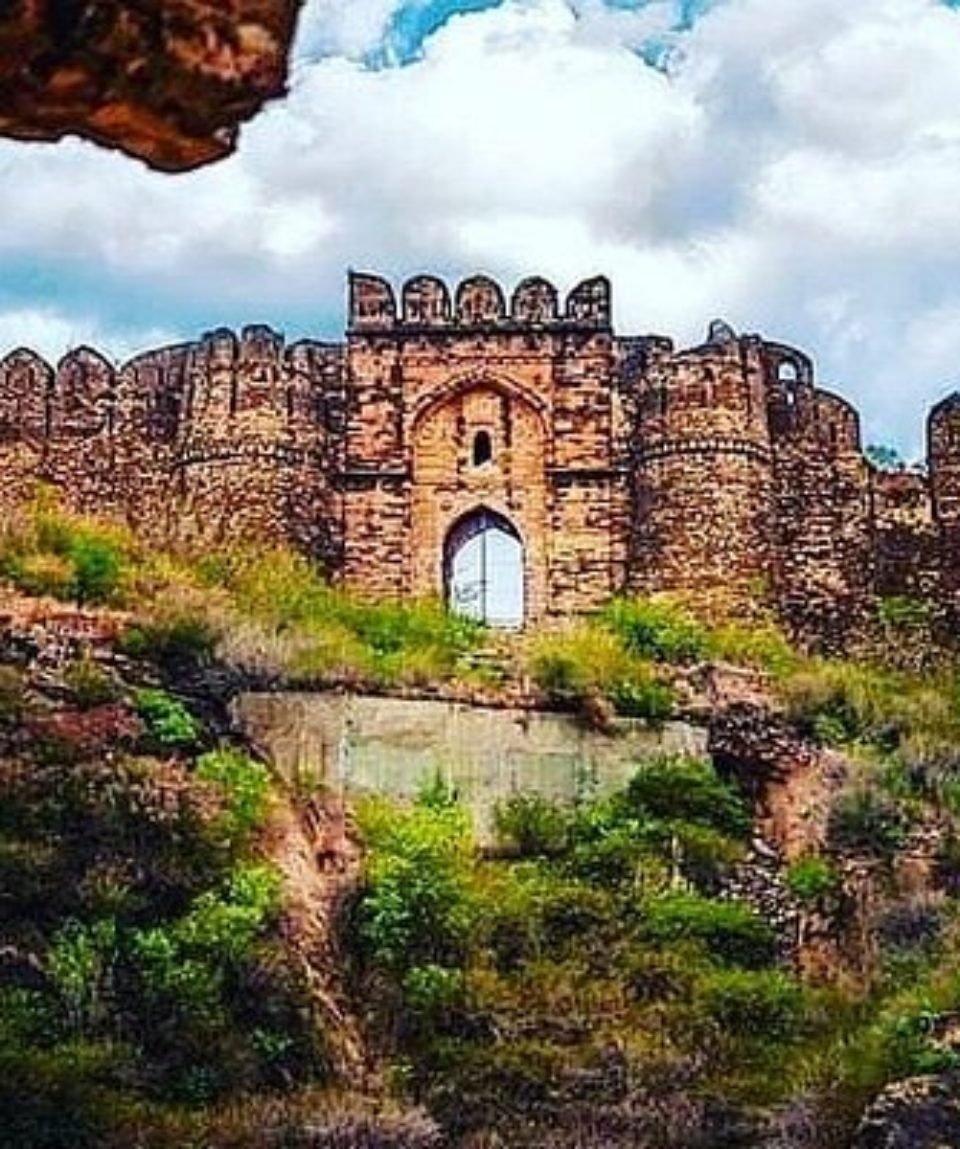ISLAMABAD 2 DAYS TOUR
from-
Reviews 0 Reviews0/5
-
Vacation Style Holiday Type
-
Activity Level Easy
-
Islamabad and Rawalpindi are twin cities located in the northern part of Pakistan. Islamabad is the capital city of Pakistan, while Rawalpindi is a major city located nearby. Islamabad is known for its modern architecture and well-planned layout, while Rawalpindi is known for its historical landmarks and traditional bazaars. The cities offer a mix of modern and traditional experiences for visitors and considered as some of the top places to visit in Pakistan. Some of the must-visit places in Islamabad include the Faisal Mosque, Lok Virsa Museum, Pakistan Monument, Shakar Parian, Daman-e-Koh, and Golra Rail Museum. These places offer visitors a glimpse into the culture, history, and heritage of Pakistan. Saidpur Village is also a popular spot for tourists interested in historical landmarks and traditional culture. In Rawalpindi, the Raja Bazar is a must-visit for those interested in traditional bazaars and shopping. The city is also home to several historical landmarks, including the Golra Sharif Shrine and the Rawat Fort. Overall, Islamabad and Rawalpindi offer a unique blend of modern and traditional experiences for visitors, making them popular tourist destinations in Pakistan.
• English speaking guide
• Air-conditioned/chauffer transportation with fuel (depending on the size of the group throughout the trip
• Entrance Fee to the Archaeological sites and Museums
• Parking fee
• All items of personal nature such as telephone calls, mini bar and other Beverages
• Meals
• Other than above mentioned
• Day use rooms if in case of flight delayed or cancellation
- Day 1 Faisal Mosque - The Iconic Mosque of Islamabad
- Day 1 Lok Virsa Museum - The Museum of Folk Heritage
- Day 1 Pakistan Monument - The National Monument of Pakistan
- Day 1 Golra Rail Museum - The Museum of Railway Heritage
- Day 1 Saidpur Village - The Historical Village
- Day 2 Shakar Parian - The Hilltop Park
- Day 2 Daman-e-Koh - The Nature Escape
- Day 2 Bari Imam - The Sufi Saint's Shrine
- Day 2 Raja Bazar - The Traditional Bazaar
PASSPORT AND VISA
Participants of all nationalities are required to have a valid passport with six months remaining validity and a visa for Pakistan. Visas must be applied online at https://visa.nadra.gov.pk/
The main category is CITY TOURS and the sub-category is ISLAMABAD 1 DAY TOUR. You will need a letter of invitation (LOI) which our office will provide along with the requisite documents like Discover Pakistan license copy and National Identity Card of the issuing authority.
PLEASE MAKE SURE YOU HAVE THE CORRECT TRAVEL DOCUMENTS AND A VISA FOR PAKISTAN.
When visiting historical and archaeological sites in Pakistan, it is important to take certain precautions to ensure your safety and preserve the sites for future generations. Here are some precautions to keep in mind:
Before visiting any site, research its historical significance, cultural practices, and any specific guidelines or restrictions in place. This will help you prepare and respect the site appropriately.
Dress modestly: Pakistan is a conservative country, so it is advisable to dress modestly, especially when visiting religious sites or conservative areas. It is respectful to cover your shoulders, wear long pants or skirts, and avoid revealing or provocative clothing.
Respect local customs and traditions:
Pakistan has a rich cultural heritage, and it is important to respect the customs and traditions of the local communities. Follow any religious or cultural practices observed at the site, such as removing your shoes before entering certain areas or covering your head if required.
Follow instructions and guidelines:
Pay attention to any instructions or guidelines provided by the site authorities or tour guides. These may include areas where photography is prohibited, restricted access zones, or any specific rules to protect the artifacts or structures.
Stay on designated paths:
Stick to designated paths and avoid trespassing or damaging any part of the site. Some archaeological sites are fragile, and stepping on delicate areas can cause irreparable harm. Follow the signs and markers to ensure you are on the authorized path.
Do not remove artifacts:
It is strictly prohibited to remove artifacts, stones, or any historical items from the site. Removing artifacts not only damages the historical value but is also illegal. Respect the archaeological significance of the site by leaving everything as you found it.
Dispose of waste properly:
Maintain cleanliness and dispose of any trash in designated bins. Keep the sites clean and leave no trace of your visit. Avoid littering or damaging the environment around the sites.
Be cautious of your belongings:
Keep an eye on your personal belongings at all times. Use a secure bag or backpack to carry your valuables and avoid displaying expensive items that may attract unwanted attention.
Stay hydrated and protect yourself from the sun:
Pakistan can have hot and dry weather, especially during the summer months. Drink plenty of water, wear sunscreen, and consider wearing a hat or carrying an umbrella to protect yourself from the sun.
Follow safety guidelines:
Be aware of your surroundings and follow any safety guidelines provided by the authorities. It is always recommended to travel in groups, especially in remote areas, and inform someone about your plans and expected return time.
By following these precautions, you can ensure a safe and respectful visit to the historical and archaeological sites in Pakistan while appreciating their cultural and historical significance
Weather
Pakistan has a diverse climate due to its geographical location and varying topography. The weather conditions in places with historical highlights can vary depending on the region and time of year. Here’s a general overview of the weather conditions in some popular historical destinations in Pakistan:
Islamabad:
Islamabad has a moderate climate. Summers (May to September) are warm with temperatures ranging from 25°C to 35°C (77°F to 95°F). Winters (December to February) can be cold with temperatures dropping to around 0°C (32°F) or lower. The best time to visit Islamabad is during spring and autumn when the weather is pleasant.
Islamabad and Rawalpindi are twin cities located in the northern part of Pakistan.
Islamabad is the capital city of Pakistan known for its modern architecture, while Rawalpindi is a nearby city known for its historical landmarks and traditional bazaars.
Some must-visit places in Islamabad include the Faisal Mosque, Lok Virsa Museum, Pakistan Monument, Shakar Parian, Daman-e-Koh, and Golra Rail Museum.
Pakistan Monument is a national monument in Islamabad that commemorates the country’s history and achievements. It is in the shape of a blooming flower and offers beautiful views of the city.
Golra Rail Museum is a museum dedicated to the railway heritage of Pakistan. It has a collection of vintage locomotives, carriages, and other railway artifacts.
Raja Bazar is a traditional bazaar in Rawalpindi, one of the oldest markets in the city. It is known for its shops selling traditional goods, textiles, handicrafts, jewelry, and local street food.

